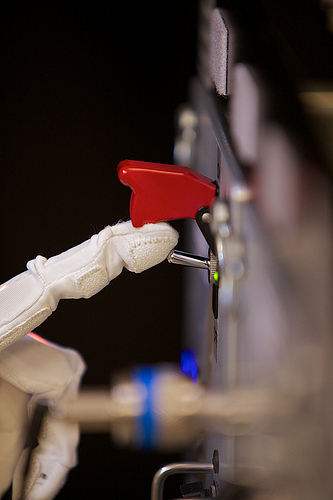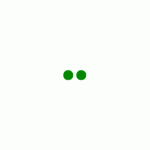
Robohub.org
Attention C++ coders: NASA/TopCoder launch $10,000 Robonaut challenge
 NASA and and the community developer platform TopCoder are launching a series of coding competitions to help Robonaut 2 learn how to interact with the types of input devices used by human astronauts on the International Space Station. Robonaut 2 was developed by NASA to perform tasks in space that are too dangerous or mundane for astronauts.
NASA and and the community developer platform TopCoder are launching a series of coding competitions to help Robonaut 2 learn how to interact with the types of input devices used by human astronauts on the International Space Station. Robonaut 2 was developed by NASA to perform tasks in space that are too dangerous or mundane for astronauts.
Competitors are challenged to write algorithms to control Robonaut and teach it how to interact with a taskboard with LEDs that turn on or off when buttons are pushed – a task that the robot will eventually perform in space.
According to TopCoder, a total of $10,000 in prizes will be awarded to competitors whose algorithms do the best job of helping Robonaut to figure out where LEDs are located on the taskboard, and whether they are on or off.

The task board will allow engineers to test R2’s capabilities in low earth orbit.
In the first challenge, competitors will be given “left eye” and “right eye” Robonaut imagery, including images from earth, from the ISS and simulation images, as well as a string array containing the names of the buttons and LEDs that need to be located. The goal is to define the button/switch’s state and (x,y) location in pixels relative to the upper left corner of a given image. Competitors will be judged on accuracy, and how long it takes to determine the state of the LEDs.
The second challenge builds upon the first: competitors will write a algorithm that controls Robonaut’s motion so that it can physically interact with the taskboard.
Each competition will run for three weeks. The first competition is already open, and will close on April 22, 2013. The second competition will follow the first – check the contest webpage for details.
TopCoder is a community platform made up of more than 455,000 software developers, algorithmists, and digital designers that aims to accelerate the development of new digital products and services.
[photos courtesy of NASA, Joe Bibby]
tags: ISS, NASA, Robonaut 2




